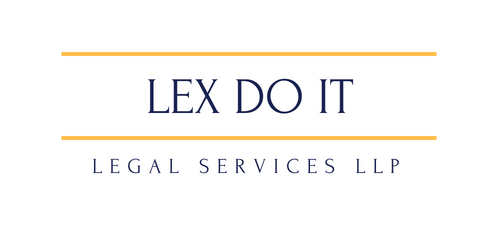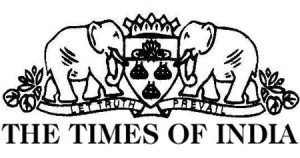Irresolute Collegium – Prey to Judges whimsy, My lords, do we have Right to Know?
SUPREME Court Collegium – a body constituted by the judges for the judges and of the judges, is once again in news for all the wrong reasons. On January 10, 2019, Collegium comprising Chief Justice of India (CJI) Ranjan Gogoi, Justices A K Sikri, S A Bobde, N V Ramana and Arun Mishra decided to recommend name of Chief Justice of Karnataka Dinesh Maheshwari and Delhi High Court judge Sanjiv Khanna for their elevation to the Supreme Court. Both sitting and retired judges have expressed displeasure at the Collegium’s decision.
A two-page resolution of the Collegium put out in public domain to this effect reveals whimsical and highly arbitrary functioning of the Supreme Court Collegium though it has been so always, but has come out in black and white for the first time. All thanks to the then CJI Dipak Misra who had taken the decision of putting the Collegium’s recommendations in public domain.
Collegium’s meeting on December 12, 2018
Supreme Court Collegium’s decision signed off by the present Collegium judges on January 10, 2019 divulges that Collegium had a meeting on December 12, 2018 wherein certain decisions were taken. It reads “The then Collegium on 12th December, 2018 took certain decisions. However, the required consultation could not be undertaken and completed as the winter vacation of the Court intervened. By the time the Court re-opened, the composition of the Collegium underwent a change. After extensive deliberations on 5th / 6th January, 2019, the newly constituted Collegium deemed it appropriate to have a fresh look at the matter and also to consider the proposals in the light of the additional material that became available”.
A section of media had also widely reported at that time that the Supreme Court Collegium had recommended the names of Chief Justice of Delhi High Court, Justice Rajendra Menon and Chief Justice of Rajasthan High Court, Justice Pradeep Nandrajog for their elevation to the Supreme Court. However, the resolution of the Collegium was not put on the Supreme Court’s website, nor was it communicated to the Union Law Ministry.
It may be noted that at no point of time after December 12, 2018, Supreme Court refuted the media reports on the Collegium recommended names of Justices Rajendra Menon and Pradeep Nandrajog. In fact, sources close to the author with credible information have revealed that the resolution was indeed signed by the Collegium consisting of CJI Ranjan Gogoi, Justices Madan B Lokur, A K Sikri, S A Bobde and N V Ramana.
However, CJI Ranjan Gogoi did not communicate the Collegium’s decision taken on December 12, 2018 to the Union Law Minister for processing the file.
Rescinding of the previous decision
The newly constituted Supreme Court Collegium with the induction of Justice Arun Misra in it, upon the retirement of the then senior-most judge Justice Madan B Lokur, has rescinded the decision of the Collegium taken on December 12, 2018. The Collegium has instead recommended names of Chief Justice of Karnataka, Justice Dinesh Maheshwari and Chief Justice of Delhi, Justice Sanjiv Khanna for elevation to the Apex Court who are junior to Justices Rajendra Menon and Pradeep Nandrajog.
Incomplete Consultation & fresh material
Supreme Court Collegium as constituted afresh after winter vacations says that the required consultation could not be undertaken and completed as the winter vacation of the Court intervened. This explanation does not appeal at all. One fails to understand, how could the earlier Collegium have signed the decision on December 12, 2018 if the so called “required consultation could be undertaken and completed”.
In addition, another flimsy ground is given to cancel the previous recommendation of the Collegium that it got some “additional material” that required fresh consideration for the names of elevation to the Supreme Court. Nobody has been made aware of this “additional material”. Moreover, the Supreme Court judges who are not part of the Collegium too would not be knowing what was that “additional material” that compelled the Collegium to revoke its earlier recommendation. The height of opaqueness in the functioning of the Collegium is unmatched. With no transparency and accountability in its functioning, its every recommendation is a reflection of its whimsical and arbitrary functioning.
Complete opaque system of Collegium
Supreme Court of India in State of U.P. vs. Raj Narain, (1975) 4 SCC 428, observed:-
“In a government of responsibility like ours, where all the agents of the public must be responsible for their conduct, there can but few secrets. The people of this country have a right to know every public act, everything, that is done in a public way, by their public functionaries. They are entitled to know the particulars of every public transaction in all its bearing. The right to know, which is derived from the concept of freedom of speech, though not absolute, is a factor which should make one wary, when secrecy is claimed for transactions which can, at any rate, have no repercussion on public security. To cover with veil secrecy the common routine business, is not in the interest of the public. Such secrecy can seldom be legitimately desired. It is generally desired for the purpose of parties and politics or personal self-interest or bureaucratic routine. The responsibility of officials to explain and to justify their acts is the chief safeguard against oppression and corruption.”
The Supreme Court Collegium is perhaps the only institution which appears to have shown utter contempt to its own observation in Raj Narain case. The institution of collegium, as of now, is beyond public scrutiny. Secrecy is the norm. Not only its functioning is opaque but even its decisions have at times intrigued one and all. Justice J. Chelameswar (Retd.) in the National Judicial Appointments Commission (NJAC) verdict mentioned that the records related to collegium’s proceedings are absolutely beyond the reach of any person including the judges of Supreme Court not lucky enough to be the Chief Justice of India.
There are no parameters available in public domain as to how the Collegium assesses the suitability, integrity and merits of the judges sought to be elevated to the Apex Court. The entire process is whimsical, random and highly arbitrary.
Chief Justice of Karnataka High Court, Justice Dinesh Maheshwari has been accused of communicating with the government directly behind the back of the Collegium. The allegation was made by none other than the then Collegium judge Justice Chelameswar. However, the Collegium suddenly found him man of “integrity” to be appointed as judge of the Supreme Court. Moreover, a judge who openly said Prime Minister Narendra Modi was his role model was appointed few months back, as the judge of the Supreme Court on the recommendation of the Collegium headed by the present CJI Gogoi. Therefore, it appears that Collegium seems to have its own mysterious criteria of assessing “integrity” and “suitability” of a candidate to be elevated to the Apex Court or for that matter to the High Courts.
The Right to Information (RTI) Act, 2005 applies to the judiciary as well. In 2009, Justice S. Ravindra Bhat of the Delhi High Court in his landmark verdict had ruled against the Supreme Court and had declared the office of the Chief Justice of India is a public authority under the Right to Information Act. He incidentally has been superseded by Justice Sanjiv Khanna.
Perhaps, Justice Bhat has been punished for pushing the limits of people’s right to know to embrace authorities which are bent on keeping their affairs under cover. The authorities have struck back in the only way they can deny him his well deserved elevation to the Supreme Court.
The attitude of the Supreme Court towards RTI Act, 2005, has been one of acute discomfort. Right to Information Act has been diluted by the Court through judicial interpretations. The stay order granted by the Supreme Court way back in 2009, against Delhi High Court judgment holding office of the Chief Justice of India subject to the RTI Act, is still in operation. Hence, the application of the RTI Act has been made wholly defunct when it comes to the Supreme Court that includes its collegium too.
Though the Supreme Court struck down the 99th Constitutional Amendment Act (commonly known as NJAC) that attempted to tinker with the collegium system, the majority judgment, however, opined that it needed to improve its functioning. However, court has not honoured its own words till date. There has not been any attempt on the part of the Supreme Court to rationalise the functioning of the Collegium.
The root of the problem is opaqueness in the functioning of the Collegium. Unless Collegium adopts a fair and transparent mechanism to recommend name of candidates for elevation, every decision is suspicious, capricious and arbitrary. After all, transparency is an aspect of rationality and the Collegium system is devoid of this very aspect.
The post Irresolute Collegium – Prey to Judges whimsy, My lords, do we have Right to Know? appeared first on TheLeaflet | An Imprint of Lawyers Collective.
Thank you for viewing this legal update on Lex Do It. For more legal news and updates do not forget to subscribe and share! Read Original Post





